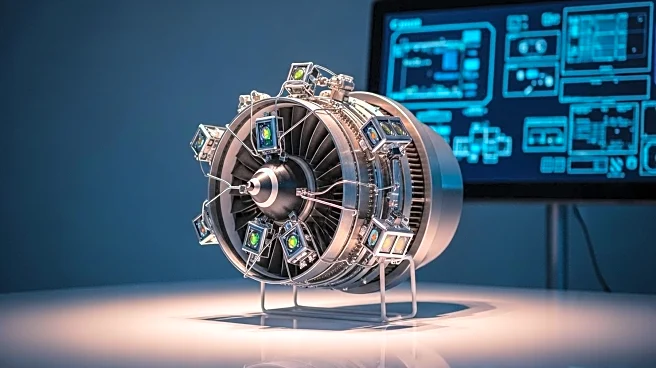What's Happening?
The Global Combat Air Programme (GCAP), a collaborative effort between Italy, Japan, and the UK, is making significant progress in developing sensors and engines for a sixth-generation fighter. The GCAP Electronics Evolution consortium, comprising Leonardo, ELT Group, Mitsubishi Electric, and Leonardo UK, is moving into the design and development phase. The consortium aims to deliver operational capability by 2035, focusing on radar and infrared search and track technology. Additionally, Avio Aero, IHI, and Rolls-Royce are transitioning to international collaboration for the detailed design of GCAP's new engine, advancing technologies in additive manufacturing and cooling systems.
Why It's Important?
The development of advanced sensors and engines is crucial for maintaining technological superiority in military aviation. The GCAP initiative represents a significant investment in defense capabilities, potentially enhancing the strategic position of the participating nations. The collaboration fosters innovation in aerospace technology, which could have broader implications for the defense industry, including job creation and technological advancements. The successful implementation of these technologies could lead to increased security and defense capabilities for the involved countries.
What's Next?
The consortium is expected to finalize a contract with Edgewing, the industrial joint venture responsible for delivering the future fighter, within the next few months. This contract will cover 12-18 months of work, focusing on the detailed design and development of the fighter's systems. Continued collaboration among the partners will be essential to meet the ambitious timeline and technological goals set by the GCAP program.









